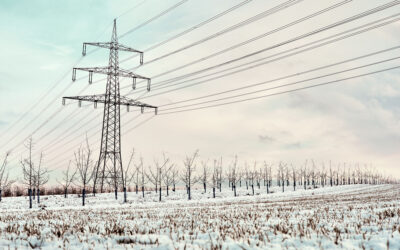You can do many things as a homeowner to ensure that your HVAC system runs efficiently. Continue reading to learn about one important thing you should do to get the best out of your A/C system!
In most homes, the condenser unit is located at the side or backyard. In these locations, they tend to be surrounded by grass and weeds. A common issue occurs when a homeowner mows their grass: the clippings from their yard will fly and then get lodged in their condenser. Specifically, these clippings will get stuck between the outer frame of their condenser and their coil, which is right behind it.
Over time, these clippings will build up and become a thick layer around the bottom of the coil.
The problem with this can be best explained by an illustration. Imagine it’s winter, and someone turns on their radiator heater to stay warm. Then imagine they put a thick blanket over their radiator. At best, this would keep the radiator from effectively distributing heat throughout their house. At worst: burnt blanket.
The same can be said for your coil. It’s basically a radiator, with the grass buildup acting like a blanket (don’t worry, it won’t catch fire). This decreases the efficiency of your HVAC system.
If you’re asking, What should I do? In a previous article, we advised homeowners to wash their coils. But to wash out thick grass, you have to do it in a specific way.
You’ll want a hose with a head that can spray a strong, thin jet of water. You’ll need to use high water pressure (we highly advise against using a pressure washer).
You’ll first want to turn off your A/C system from your thermostat. The reason is that the fan at the top of your condenser will spray you with water if you don’t, and no one wants that.
Now imagine you’re standing in front of your condenser. You’ll see that the coil wraps around all four sides of your condenser; it stops at the panel walls separating it from your electrical cords and panel.
You’ll need to get low and bring your hose head as close as possible to the openings in your outer frame, through which you can see the grass.
Next, you’ll want to use your water like a poking stick to move the grass towards the panel walls, a chunk at a time. This works because the grass will spray out of the unit when it hits these panel walls. You’ll do this over and over until your condenser is free from grass.
Keep in mind, the more often you do this, the easier it will be!
Follow our social media pages to be updated whenever we post tips about maintaining your HVAC system.
If you need a professional team of HVAC technicians to repair or perform maintenance on your A/C system, Absolute Heat & Air is here to serve! Contact us by clicking here.




